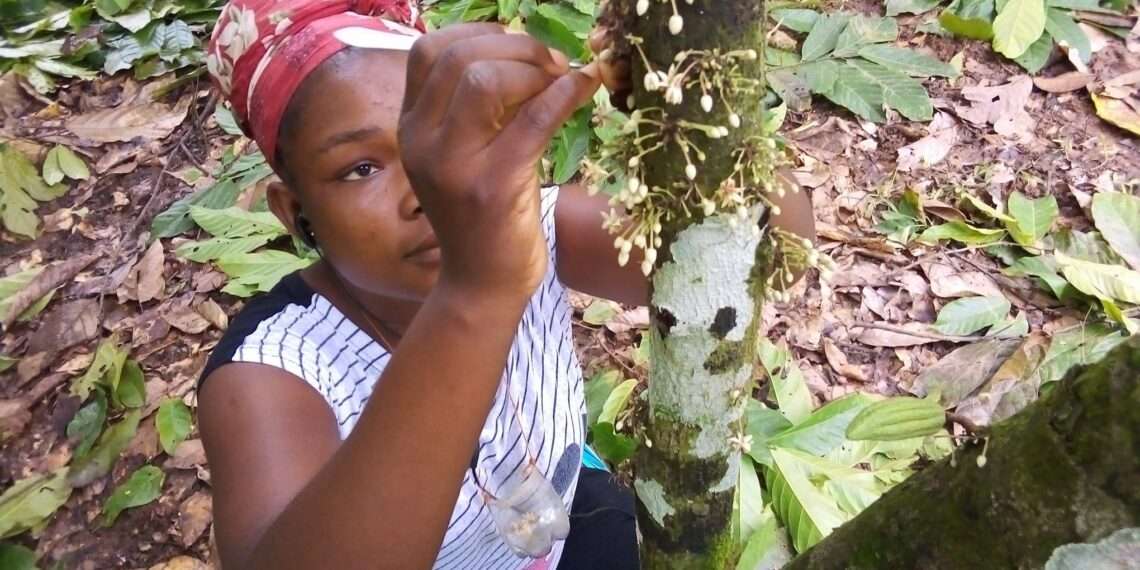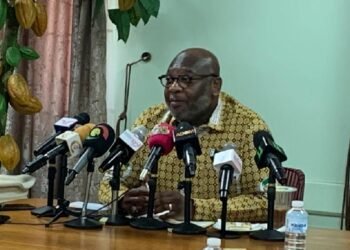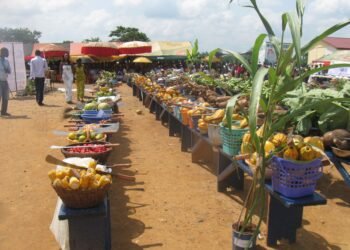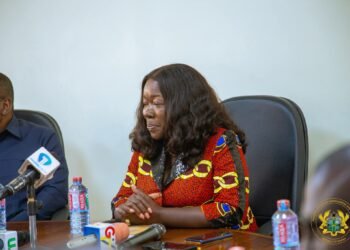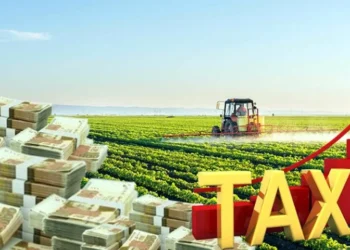Mr Samuel Osei, the Regional Manager of Western South Cocoa Health and Extension Division (CHED), has extended CHED’s education to cocoa farmers in the Western Region to adopt hand cocoa pollination farming practices to increase their cocoa production.
The Western-South CHED Manager made this known during a field tour at cocoa farming communities such as: Asankragua, Manso Amenfi, Tarkwa and Huni-Valley to monitor the progress of this year’s hand pollination exercise on cocoa farms.
Mr Osei expressed his satisfaction with the works done so far, saying that “I’m impressed by the results achieved so far by participating farmers and I encourage all cocoa farmers in the Region to adopt the technique on their farms, having done massive pruning of their farms”.
Mr Samuel Osei, while at Bremang in the Huni-Valley District, said he interacted with a cocoa farmer and his wife, who said they imbibed the skills from the Community Extension Officers of Huni-Valley on their own and gladly pollinated their own 8-acre-farm which having an average of 118 pods per tree with an outlier of 403 cocoa pods.
The feat, the Regional Manager noted, would translate into at least 32 bags of dried cocoa beans per acre to give the farmer higher returns from his investment.
Mr Osei educated the cocoa farmers to make themselves available for the Community Extension Agents to train them and their farm hands free of charge and give them tools such as forceps, free of charge from Ghana Cocoa Board (COCOBOD) to enable them to undertake hand pollination exercise frequently on their farms.
The Western-South CHED Manager urged cocoa farmers who adopted the skills of technical and input support to protect their cocoa pods from insects and fungal attacks for increased productivity.
Meanwhile, Ghana’s cocoa sector is recovering steadily from the triple-headed problem of drought, disease and aged farms. The challenge meant that in the past couple of years, the second- largest cocoa producer nation in the world struggled to meet production targets for its premium cocoa beans.
Hand Pollination
Unlike other plants, bees do not pollinate cocoa blooms. A tiny insect called Midge is the only insect that pollinates the complex reproductive structure of the cocoa flowers, basically due to its extremely small size. Obviously, this results in naturally low yields hence the introduction of the hand pollination technique.
Hand pollination is the artificial process whereby pollen is collected from flowers on a tree or nearby ones and dropped on the stigma of the flower.
This process leads to cross-pollination, increasing the number of flowers pollinated daily; which then results in massive fertilisation and cherrelle development. Ghana has adopted hand pollination of cocoa since 2017 as part of COCOBOD’S PEP.
The cocoa hand pollination productivity enhancement intervention commenced in June 2017, employing 7,000 youth from cocoa-growing communities, mainly women.
Currently, about 30,000 youth have been engaged across Ghana’s seven cocoa-producing regions, up from 20,000 the previous season.
With beneficiary farmers already testifying to gains from hand-pollination, it is expected that the technique will be fully embraced by all leading to sustainable jobs for the trained pollinators, contributing to poverty alleviation.
The Ghana Cocoa Board (COCOBOD) which regulates the sector introduced its Productivity Enhancement Programmes (PEP) aimed at resuscitating production levels. Under the PEP such initiatives as cocoa farm rehabilitation, mass spraying, hand pollination, mass pruning, fertiliser application, irrigation and continuous farmer education on good agronomic practices are being carried out in all seven cocoa-growing regions.
Each of the initiatives under the Productivity Enhancement Programme is working together for the good of Ghana cocoa, in terms of increasing bean production and also developing an environmentally responsive cocoa sector.
READ ALSO: Government Receives $540 million Revenue in Oil Receipts for First Half of 2023

